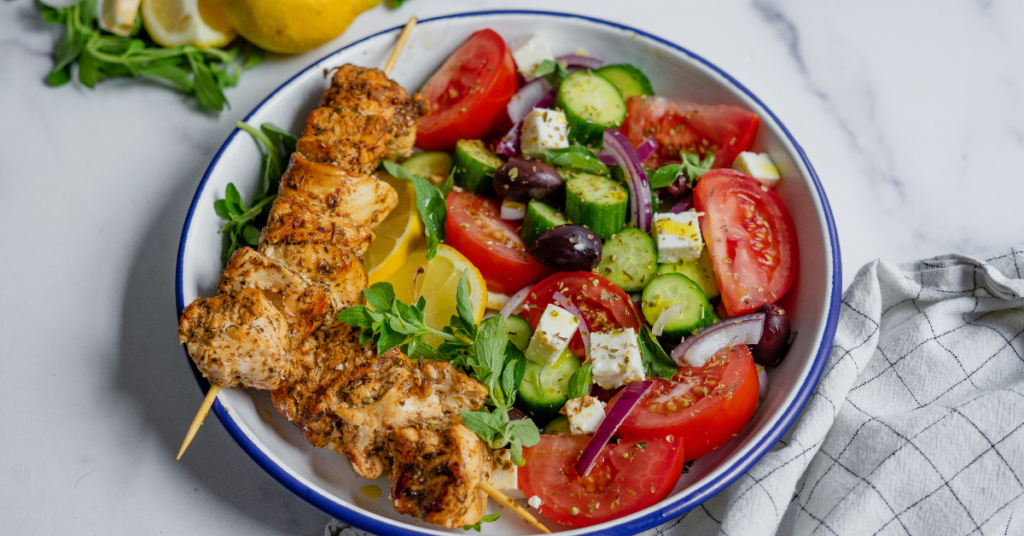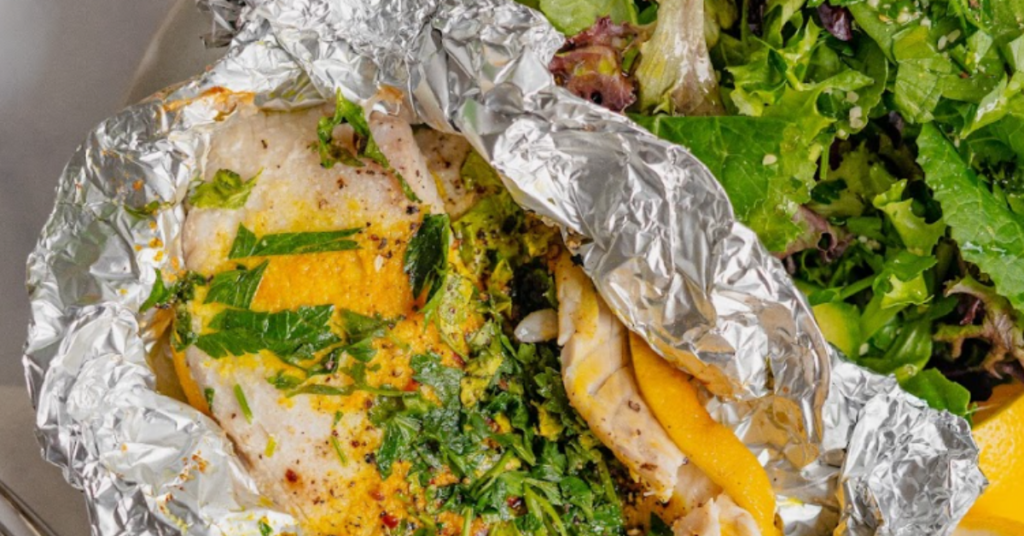Coach Berit Young and I recently recorded a podcast that talks about this same topic and we discuss many of the same things in this blog. So if you’d like something to listen to alongside this blog, want to think more deeply about change, you’ll love this episode! You can listen to it here.
Roughly 4,000 years ago one of the great traditions of our modern life was born. Every year in mid-March, when the crops were being planted, Ancient Babylonian citizens gathered for a 12-day religious festival known as Akitu. During Akitu Babylonians looked back at the people they wronged over the past year, debts that needed to be re-paid, and as a collective, they would either crown a new king or re-affirm the current king. Setting the empire up for another year of prosperous crops and a healthy life.
This practice is the first recorded version of what we now know as New Year’s Resolutions. Ancient Babylonians took this seriously. Most of the citizens engaged in at least some kind of reflective practice, and they took the idea of deciding if their king was fit to keep ruling as their civic duty. Given how difficult changing our lives is, even in ancient times, it’s even easy to imagine that plenty of ancient Babylonians got frustrated hearing their neighbors talk about changing the same things year after year. Somethings never actually, change, right?
Just about every person in the developed world is thinking about changing something in their lives right now. It happens every single year around this time, and with it comes an unbridled sense of optimism. It doesn’t matter if you’re resolutioner or not, that idea that with a new year we can wipe the slate clean is something all of us can identify with. Begin again, and start fresh. The new year holds infinite possibilities, and for many of us, that can mean that we start each year thinking this is finally our year.
For so many of us, making this year ours involves altering our approach to food so that we can lose fat, build muscle, perform better in the gym, feel more comfortable around food, and the list goes on. This desire to eat better at the start of the new year is nearly ubiquitous at this point. It’s something we’ve all heard about, and in 2018 it was a big enough deal that 45% of us made it our New Year’s resolution.
But if changing the way we eat is such a common goal at the start of every year, why is it something that we see at the top of resolution lists every single year?
For starters, changing is flat out hard. It’s a truism of human nature that we don’t actually like change all that much. On the biological level, we’re big fans of homeostasis — or keeping things the same. Staying the same means that we’re staying alive, and from a biological point of view, that’s a good thing. But that inborn desire to stay the same doesn’t stop at the cellular level. Change requires new and different things from us. In many ways, changing literally means no longer doing what we’re used to and acting in different ways.
Nowhere is this more true than in how we handle our eating. Every year millions of people resolve to eat better in the New Year, and every year millions of people find out just how much of a challenge doing so on a consistent basis actually is. At Stronger U, we don’t think we’ve got all the answers as to why so many people struggle to eat better, but we do have a few good ideas informed through thousands upon thousands of transformations. And one of the key components of why people struggle so much is the simple fact that people have the intention to change, but they don’t change some of their basic behaviors around food.
We’re here to change that, and we plan on helping you change that with a few simple behavioral changes you can make that will bring you the highest return on your time and energy investment. None of these are groundbreaking or brand new. If you’ve been around SU for a while now, chances are you’re already practicing them. But if you’re brand new, these are bound to be game-changers for you and your efforts. And no matter who you are, these are helpful reminders that can all benefit by coming back to from time to time.
Winging it vs. planning your food
How many times have you walked into a meal or a day with no real idea of how you wanted to handle it other than “being more mindful”? Now, make no mistake, we are and always will be fans of anyone and everyone being more mindful of the things that they eat. That’s a healthy practice to utilize at any given point, but if you’ve logged and tracked for any specific length of time, you know that being more mindful around what you eat isn’t the cure-all that most of us wish it was.
Human behavior is a funny thing in that we will try to find any number of ways to delude ourselves about our past choices, most of the time without us even realizing it. We have a tendency to look at the past through rose-colored glasses. The days that went haywire have a way of not seeming so rough when we look back a week later, two weeks later, and so on.
This is something we all do. We’re all continually writing the story of our lives in our heads each and every day, and in that story, we fit every behavior and choice we make. This is known as narrative bias, and we justify every single thing we do by fitting it into the narratives of our lives. In the context of our food choices, this typically means that we view the off-plan days a bit more favorably than the way they actually went down.
So what should you do instead of winging it?
If you’re serious about changing, that also requires changing some of your choices and behaviors. In this instance, that means planning your food consistently and leaving the days of winging it behind. At least for a little while.
Planning out your food is one of the greatest investments of your time that brings the highest ROI. If you’re waking up with a plan already in place, you no longer need to think about what you’ll be eating for breakfast, lunch, dinner, or what you’ll be snacking on. Having that plan in place frees up mental energy that you can use elsewhere. It also helps ward off the temptations that tend to get in our way, because if a co-worker is bringing a box of donuts that are staring at you all day long, it’s much easier to say no when you know you’ve already got a plan in place for that day compared to justifying it by saying:
“Well, only one donut isn’t going to throw me off track. I just need to pay attention to the rest of the day.”
Don’t put that pressure on yourself for the rest of the day. Instead, ensure your success by having a plan in place before you walk through the door.
Eyeballing vs. tracking
Maybe you’ve been tracking for years now. Maybe you just started. Or maybe you used to track meticulously and you’re getting back to your old tracking ways. No matter where you’re at in this process, chances are you’ve eyeballed what you’re tracking at some point or another. And chances are that if you’re eyeballing often enough, that’s not giving you an honest look at how much you’re really eating.
We all get it. Sometimes honestly tracking the things we eat can feel cumbersome. If you’re making a recipe there’s the weighing of individual ingredients, logging them in MFP, creating that recipe, and figuring out how many servings you’ll be having. There are plenty of steps that can feel like overkill, especially if the food you’re eating comes from whole food sources.
But part of the reason we care so much about honestly tracking the things we eat is the act of tracking is one of our greatest teachers. We begin to learn the caloric and macronutrient content of the foods we eat regularly, and more often than not that can be a surprising learning experience. Because honestly, who would’ve ever guessed that even extra lean ground beef had as much fat as it does, right? And as any experienced tracker knows, that fat can add up.
What should you do?
Track track track. And when you’re tired of tracking, keep on doing it. Tracking is the greatest teacher you’ll ever have on this program. Not your coach. Not the community. Not your friends that are doing this program with you. Honestly tracking the things you eat is a process of actively learning about the foods you eat consistently and those that you don’t eat consistently.
Now, let’s address the elephant in the room: we don’t expect you to be tracking the food you eat every day until the end of time. At Stronger U, we have members who have tracked for a 12-week session and then been done. That was enough for them and they learned the necessary skills that allowed them to be mindful and aware of what they were eating, thanks to the information they’ve learned about what they eat.
We have others who have tracked for years now and show no signs of slowing down. They still log because they like the accountability that doing so on a regular basis provides, and in more than a few ways, tracking becomes a source of comfort and almost like a game to play with your food on a regular basis.
There’s no clear answer on how long you should be tracking. But what is clear is that tracking will inevitably teach you important lessons that you need to carry forward with you if you’re going to maintain the results you’ve achieved.
Leaving off-plan days blank vs. logging them
So you had a bad day? Well, aside from queuing up that old Daniel Powter song, how should you handle it?
The most common answer we see is people leaving those days blank. Be it a party, a dinner date with your significant other, or a day that just unexpectedly went sideways. It’s hard to log a big dinner where you munched on chips and dip, washed it down with a couple of drinks, and then had a big helping of Risotto for dinner. By the time you’re opening up MFP, trying to put all of that in can feel more complicated than what the good folks over at NASA are currently working on.
So what do most of us do in that situation? We leave the day blank. We don’t enter anything into our spreadsheet, grade the day as an F, get ready to see the scale jump up, and know that we’ll have to deal with the aftermath of our decisions. And some of those ideas are right! When we do go off plan we have to be aware of the fact that the scale is probably going to respond in kind with what our recent choices have been. We also have to be aware that there’s nothing we can do about that day anymore. It’s gone. It’s in the past. Unless you’ve figured out how to travel through time, there’s no changing that day anymore.
However, while this might be the easy answer for that situation, that doesn’t make it the right answer.
What should you do instead?
Log them. Always!
Seriously, no matter how rough your day or your meal might’ve been, log it. Look what you ate up in MFP and gather an estimate of what your choices looked like. If you were eating at a restaurant or a homecooked meal it’ll be hard to find an accurate representation of what you ate, and that can feel discouraging. Especially with how much we talk about how we want to see you log as accurately as possible.
But I’ll let you in on a little secret: every single coach here at Stronger U knows that you’ll have certain things you log that aren’t 100% accurate.
That’s just the nature of the game. Logging is a fickle beast and it doesn’t take much time to figure that out. It requires diligence on our part to look up the various foods we eat, measure those foods, and sort through the thousands upon thousands of entries in MFP. When you’re eating a homecooked meal or eating out with friends, the difficulty just went up a level. Now you’re not able to control every single ingredient. Now you’re working with estimates and you’re at the whim of whatever is in MFP. Sometimes that can feel overwhelming to look through and it can make it much easier to decide to throw in the towel for the day and pick back up tomorrow — a fresh start.
While there’s no harm in a fresh start, we still want to log. Logging is important because it creates a backlog of the choices we’re making. It gives us something that we can look back at and use to gauge our progress. We talked about looking at the past through rose-colored glasses earlier, and this a great example of that. If we had a big blow out day four weeks ago, we don’t actually remember many of the details about that day anymore. And we sure don’t remember what the caloric impact of that day might’ve been.
However, if we log that day, that gives us something to judge ourselves against. And the past version of you is the only person in this world that you should be judging yourself against. If you at least have an estimate of what you did on that day, it makes it far easier to bring to mind what you actually did and how you behaved. Those off-plan days will inevitably happen again. When they do, that provides a new opportunity to field-test many of the strategies we work on here and then grade yourself in the present against how you handled that in the past. And when we can make tiny, incremental improvements in those situations, that’s where progress happens.
Consistency compounds over time
If you’re going to take away anything from this blog, make it this line: consistency compounds over time.
Much like compounding interest has a way of helping us grow our money, consistency has a way of compounding the efforts that we put in on a daily basis. It’s easy to start an attempt at changing your life and within a week or two feel hopelessly overwhelmed by the bigness of it all. Progress might not happen at the rate you expect. There might be more challenges and curveballs that come your way than you were ready for.
Keep your head down and think about the decision that’s right in front of you, because that’s the only decision that really matters. You didn’t get to this point overnight, and you certainly aren’t going to get where you want to go overnight. That’s going to take time and effort, and in many cases, it’ll take more of both than you’re aware of. If this were easy, we wouldn’t be battling an obesity epidemic.
But don’t let that be discouraging. Instead, flip the script. Make that something that’s encouraging. Take solace in the fact that you’re not supposed to have this figured out immediately, and you’re not supposed to change your entire life overnight. You’re supposed to show up consistently in your efforts. You’re supposed to repeat those efforts every chance you get. And over the grand arc of time, if you do that, the change will happen.









